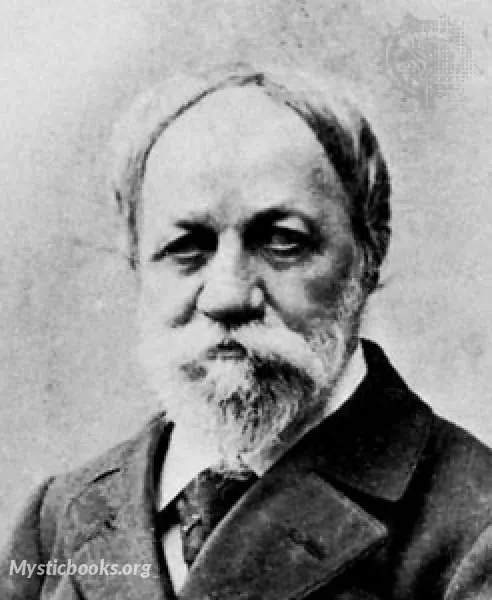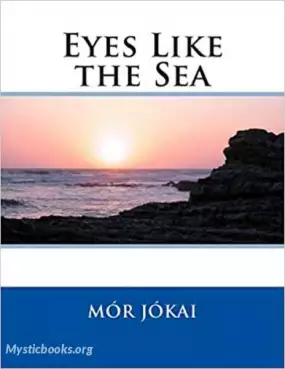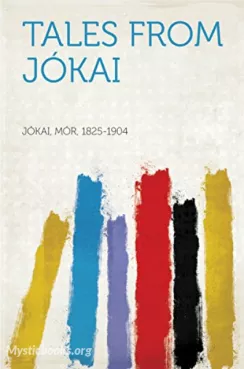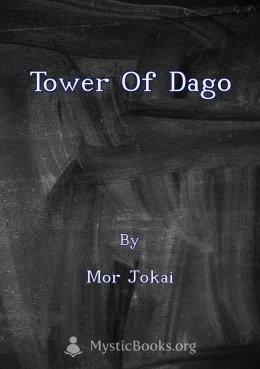
Timeline
Title
Country/Nationality
Mor Jokai
Móric Jókay de Ásva, outside Hungary also known as Maurus Jokai or Mauritius Jókai, was a Hungarian nobleman, novelist, dramatist and revolutionary. He was active participant and a leading personality in the outbreak of Hungarian Liberal Revolution of 1848 in Pest. Jókai's romantic novels became very popular among the elite of Victorian era England; he was often compared to Dickens in the 19th century British press. One of his most famous fans and admirers was Queen Victoria herself.
He was born in Komárom, in the Kingdom of Hungary (present-day Komárno in Slovakia). His father, József Jókai de Ásva (1781-1837), was a member of the Ásva branch of the ancient Jókay noble family; his mother was also noblewoman Mária Pulay (1790–1856). The boy was timid and delicate, and was therefore educated at home until the age of ten, when he was sent to Pozsony (today: Bratislava in Slovakia). He then completed his education at the Calvinist college at Pápa, where he first met Sándor Petőfi, Sándor Kozma, and several other young men who subsequently became famous.
After his father's death when Jókai was 12, his family had meant him to follow the law, his father's profession. The young Jókai, always singularly assiduous, plodded conscientiously through the usual curriculum at Kecskemét and Pest (part of what is now Budapest), and succeeded in winning his first case as a full-fledged lawyer.
The drudgery of a lawyer's office was uncongenial to the ardently poetical Jókai. Encouraged by the encomia pronounced by the Hungarian Academy on his first play, Zsidó fiú (The Jewish Boy), he moved to Pest in 1845 with a manuscript novel in his pocket. There, he was introduced by Petőfi to the literary society of the Hungarian capital, and the same year his first notable novel Hétköznapok (Working Days), appeared, first in the columns of the Pesti Divatlap [hu], and subsequently, in 1846, in book form. Hétköznapok was instantly recognized by all the leading critics as a work of original genius, and in the following year Jókai was appointed the editor of Életképek, then the leading Hungarian literary journal, and gathered round himself a circle of young Hungarian writers.
He married the great tragic actress, Judit Benke de Laborfalva, on 29 August 1848. On the outbreak of the revolution of 1848, the young editor enthusiastically adopted the nationalist cause. He was a moderate Liberal, opposed to all excesses; but, swayed by the nationalist victories of April and May 1849, he supported Kossuth's decision to depose the Habsburg dynasty. He was present at the surrender at Világos (now Şiria, Romania) in August, 1849. He intended to commit suicide to avoid imprisonment, but was spared by the arrival of his wife, with whom he made a difficult journey on foot through Russian lines to Pest.
For the next fourteen years, Jókai lived the life of a political suspect. Yet this was perhaps the most glorious period of his existence, for during it he devoted himself to the rehabilitation of the Magyar language, composing in it no fewer than thirty novels, besides innumerable volumes of tales, essays, criticism and faceti. This was the period of such masterpieces as Erdély aranykora (The Golden Age of Transylvania), with its sequel Török világ Magyarországon (The Turks in Hungary), Egy magyar nábob (A Hungarian Nabob), with its sequel Kárpáthy Zoltán, Janicsárok végnapjai (The Last Days of the Janissaries), and Szomorú napok (Sad Days).
On the re-establishment of the Hungarian constitution by the Austro-Hungarian Compromise of 1867, Jókai took an active part in politics. As a constant supporter of the Tisza administration, not only in parliament, where he sat continuously for more than twenty years, but also as the editor of the government organ, Hon, founded by him in 1863, he became a power in the state, and, though he never took office himself, frequently extricated the government from difficult places. In 1897 the king appointed him a member of the upper house. In 1899 he created a country-wide scandal by contracting a marriage with Bella Nagy, a young actress.
Jókai died in Budapest on 5 May 1904, his first wife having died on 20 November 1886. Both were buried at the Kerepesi Cemetery.
Books by Mor Jokai

Eyes Like the Sea
He was a painter, a poet, a novelist. He lived during the Hungarian revolution and his love of freedom meant his life was often in peril. She was his first love, this girl with the eyes like the sea. She was at heart noble, good and loving. What an e...

Tales from Jókai
Immerse yourself in a captivating collection of Hungarian folktales, where history and fantasy intertwine, and the spirit of a nation comes to life. In Mór Jókai's "Tales from Jókai," you'll discover a treasure trove of stories that have been passed...

Tower of Dago
Tower of Dago is a captivating tale of betrayal and revenge. Feodor von Ungern, a man consumed by bitterness after being betrayed by his brother Zeno, seeks solace and retribution in a formidable tower on the isolated island of Dago. He uses this st...